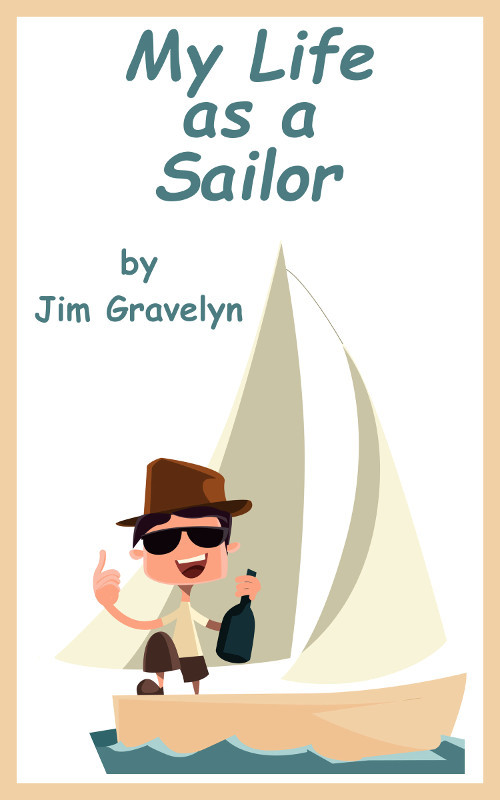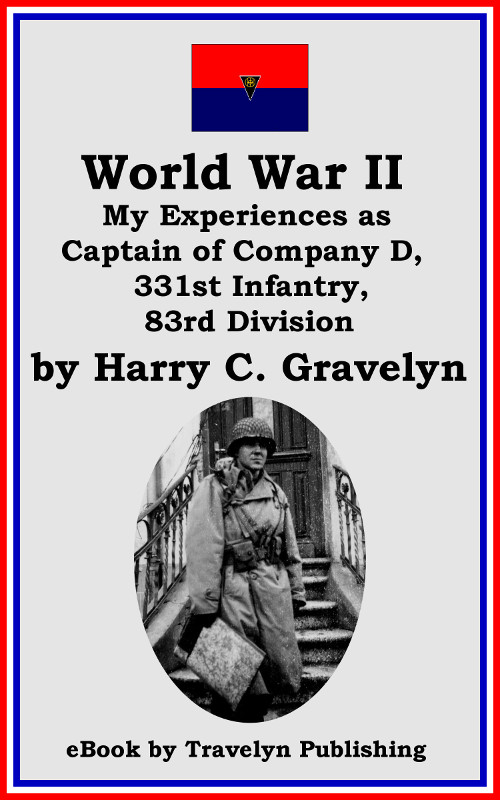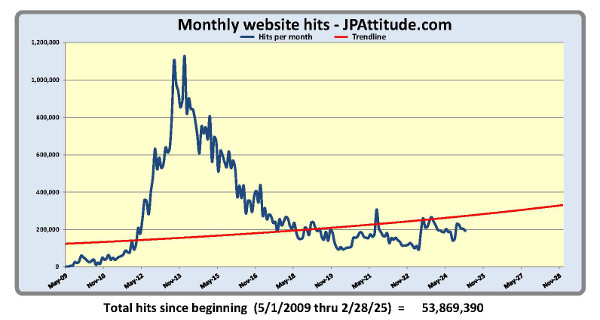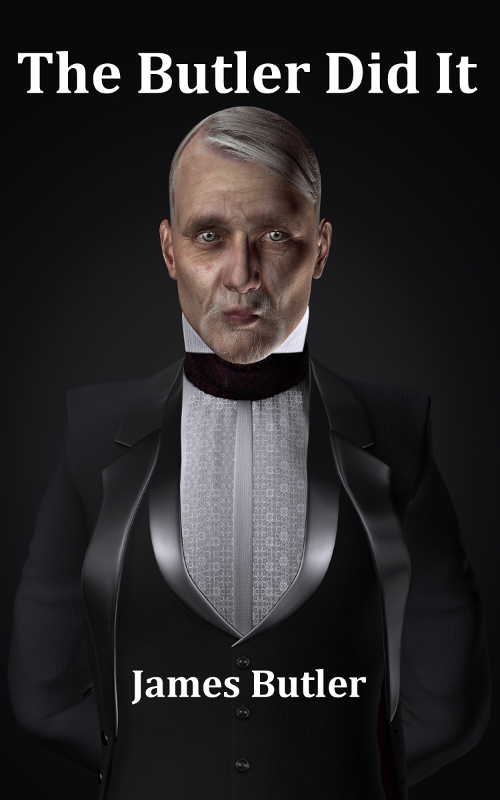The healthcare issue, Part 1
August 8, 2009
Last week somebody emailed and asked me to address the issue of healthcare. Imagine my delight: number one, that somebody out there actually reads my columns and contacted me; and number two, that it wasn’t profanity-laden hate mail.
Two days after that email, I visited the local emergency room with chest pain. Is that perfect timing or what? I’m such a lucky guy. First I get a column request and then I get personal experience to use in the column.
(My luck has been legendary my whole life. It’s family lore. When I lost my lucky silver dollar in my sister-in-law’s car, she practically tore the car apart looking for it—she was afraid to drive anywhere until it was removed.)
I have a history of chest pain. About fifteen years ago, I was working for a municipality that shared a parking lot with a fire station. I’d been feeling minor chest pain for years and ignoring it but one day it got so bad it was distracting me. Since I’d had an argument with an employee that day, I wondered if the pain was related to mental stress and wandered across the parking lot to ask the fire guys to take my blood pressure.
That’s all, just take my blood pressure.
Good Lord, it was like jamming a Mrs. Butterworth-covered stick into an ant hill. Walking into a fire station with chest pain is worse than walking into a hospital with chest pain. Fire stations are full of people itching to practice their chest pain learnin’ and get their chest pain merit badge. Next thing I knew, I was strapped to a stretcher wearing an oxygen mask, blood pressure cuff, and heart rate monitor. The room was full of eager faces anxious to impress the fire chief, also in the room. Even the fire department secretary was in the room giving advice. “Take his shoes off! Raise his head a little bit!” Somebody finally told her to shut up and let the trained firefighters do their work.
Okay, okay, it was me that said that—I didn’t want to be separated from my shoes for God’s sake. I have ugly feet.
Once I knew my blood pressure—it’s always low, even when Bill Clinton or Barack Obama is on TV—I probably could have talked my way off that stretcher and out of the firehouse, except when the ambulance showed up one of the attendants was a cute blond who really filled out her uniform pants.
So I decided an ambulance ride would be okay.
At the hospital they rushed into action, did all their tests, monitored me closely for a few hours, and eventually sent me home. They said there was something fishy about my EKG, which after follow-ups with a cardiologist turned out to be mytral valve prolapse, a generally benign congenital condition that in some people causes chest pain. Turns out I’m one of those people. My luck again.
Since my chest pain always disappears with exercise, it’s really a disguised blessing. It’s a built-in exercise alarm clock that won’t let me vegetate in a chair too much. If I try, the pain comes and lets me know I need a long walk or a workout. Pretty cool, eh? You probably wish you had one.
I acquired some interesting bragging rights during the follow-up tests. I became the very first “stress echocardiogram” subject in West Michigan. They probably picked me as the testee (two e’s at the end, not one) because I was relatively young and in good shape. The stress echocardiogram was a brand new concept and they didn’t want to kill some poor old codger while they were learning the ropes. That’s my theory anyway.
So they did their best to kill me.
The problem with me and stress tests is that I’m in good shape but I’m not a runner. The goal of the technician is to raise your heart rate high enough to see how the organ functions under stress. Trouble is, if you’re in decent shape it can be difficult getting your heart rate to rise sufficiently. They compensate for that by having the treadmill gradually speed up—and also tilt up—until the heart rate is where they need it.
With me, that means I am eventually sprinting full speed up a forty-five degree slope, scared half to death, with the wildly spinning treadmill hissing and rumbling away underneath like a mechanical monster, and a puzzled technician staring at the heart rate monitor and occasionally smacking it like it’s a stuck speedometer in an old car.
Fact is, my heart doesn’t like to speed up. It’s stubborn, like me.
Because I’m not a runner, my legs don’t like this treadmill business. I’m a sports junky with a lifetime’s worth of joint wear-’n’-tear and my left knee starts screaming at me almost instantly when the treadmill forces me into a run. I don’t notice the knee when I’m walking, running after a basketball, or diving for a volleyball but on a treadmill I notice.
Then there’s the tilt issue—when the treadmill tilts it stretches out your calf muscles, which in my case are already upset about the unusual activity. Pretty soon my calves are screaming louder than my knee.
But my heart rate eases along in the sixties, up from a resting rate in the fifties but not where they want it. I’ve done that test twice now and both times it was a nightmare.
The first time involved a big audience. Because this was a Big New Thing, cardiologists and other medical personnel crowded into the room to watch. The people doing the actual work were doing it for the first time so, in their ignorance, they tried to smear goop on my chest and take the ultrasound while I was dashing up the treadmill slope like Flash Gordon and sweating like a hog.
Didn’t work. At all. Like I said, I’m not a runner. On a sadistically-slanted whirling treadmill, propelled by screaming calves and sore knees, I don’t run gracefully like a gazelle. I lumber like a plough horse.
First the nurse technician tried to get a decent picture on the screen, smearing the goop on my chest and then trying to hold the ultrasound dooflickie steady while I lumbered along. Then the attending cardiologist tried to get a decent picture. Then they stepped back and discussed it. Then they asked for comments and advice from the assembled crowd.
All this while I suffered, galloping along like a wounded Clydesdale.
I almost said, “To hell with this,” and jumped off the treadmill but one of the onlookers was a really cute cardiologist—even cuter than the ambulance attendant—and I worried about looking like a sissy. So I kept going and tried to reduce my pig-like sweating because it’s been my experience that cute girls don’t appreciate pig-like sweating.
Eventually one of the onlookers suggested that we raise my heart rate as high as possible—“It’s not high enough NOW?” I thought to myself—and then quickly lay me down and do the ultrasound in that position. So that’s what they did. That’s what they still do.
They learned that on me.
Three years later, because my cardiologist wanted to compare pictures over time to see if my condition was deteriorating, I did it all again. This time it was done in a suburban cardiology center rather than a downtown hospital because, in just three years, the stress echocardiogram had become standard boring regular stuff.
At the risk of making a point here, the medical profession went from brand new procedure to standard operating procedure in three years. In England, I would have waited three years just to meet the guy who bleeds people with leeches.
This second stress echocardiogram took place on a treadmill lined up with nine others. It was like being in a race, except the other two guys being tested that day [Why is it always guys with heart trouble? Answer: because women don’t have hearts.] were both a million years old and barely got past walking speed. I felt sorry for them until I started sprinting and aching again, whereupon I switched the sympathy focus to myself, where it belonged.
This time, because I was anxious for the pain to end, as soon as the technician said my heart rate was high enough I let go of the treadmill handles and let the machine carry me off the back. I don’t recommend that. It was hard on the various medical equipment they had against the wall behind the treadmills, which I crashed into rather dramatically, and I needed Band-Aids on my elbows and the back of my neck.
So fast forward to the present. Fifteen years ago I made a vow never to visit an ER with chest pain again because it’s embarrassing when it turns out nothing is seriously wrong, but that vow went by the wayside last week when I got the worst chest pain ever. It worried me enough to send me to the emergency room.
(First, though, I stopped and put air in my tire because I have a slow leak and, if I died, there would be enough to worry about without a flat tire on my car. It’s a guy thing.)
Fifteen years later, and the emergency procedures here in Reno were pretty much the same as they were back in West Michigan. I’m a man, I’m over fifty five now, and I had chest pain: it was another Mrs. Butterworth-covered stick into the ant hill.
The ER receptionist gave the guy sitting next to her a meaningful look, picked up the phone, and very quickly the ants were on the scurry. The guy immediately got up and brought me a wheelchair. Trouble is, he was about a hundred years old and could barely walk so it was embarrassing as hell sitting down in that wheelchair. I mean, this guy was old. My father is ninety years old and if he was sitting in a wheelchair when this guy came by, I’d say, “Dad, get up and let this old man have your wheelchair.” That’s how old he was.
Just a few days earlier I had walked up the hill to a fitness center, worked out, and then walked up mountains in 100-degree heat—two days in a row—and now I was sitting in a wheelchair with Moses as the driver. Already I regretted coming to the ER.
I kept imagining what would happen if the Big One came and my heart gave out and they shouted at this guy to rush me down the hall for resuscitation. The Code Blue Team would probably take a coffee break while they waited for us.
Not to worry: apparently the phone call was to fetch a younger driver, who came and started wheeling me toward a room. No waiting, no suffering in the waiting room—immediate attention from medical personnel. Five minutes after arriving they had my first blood sample off to the lab, and within about fifteen minutes I had a room and was hooked up to an EKG.
Four hours later, after my third blood sample tested okay (two hours apart), they moved me down the hall to their heart institute for a stress test. Eat your hearts out, England, Canada, and all you other socialized medicine hellholes.
You can imagine how I felt about another treadmill sprint. There was no way I wanted that kind of knee pain and, besides, I was so hungry my stomach thought my throat was cut, so I was all prepared to refuse but, lo and behold, they told me no treadmill was involved. They wanted to give me a “chemical” stress test. I said okay to that, thinking to myself, “How bad can it be?”
Pretty bad, as it turns out. Not at first—first a nurse pumped radioactive stuff into my IV and placed me on a narrow table where a giant machine slowly rotated around me snapping pictures for a half hour. I guess that was a CAT scan but I don't really know because my normal curiosity was dulled by hunger. (I wondered if this giant methodical picture-taking machine would find the big glob of bubble gum I swallowed in 1962. Probably not.)
Once that was over, it got bad.
The chemicals they pump into you for the chemical stress test give your heart the same kind of stress that sprinting on a treadmill gives you. I kind of picked up some clues that it wasn’t going to be pleasant when they took me into a special room and four people filed in to stand around my bed.
“Why do we suddenly need four people?” I asked myself. “Oh oh,” I answered myself.
It’s kind of magical what happens. They pump the chemicals into your IV and immediately you feel like you’re having a heart attack. After about two minutes, when they suspect you are going to live, two of the four people leave the room with disappointed looks—back to wherever vultures perch between meals I guess. The remaining two people let you suffer for ten or fifteen minutes while they take repeated scans of your heart under stress, and then they pump the antidote into your IV and all the discomfort immediately ends. Voila.
One more fifteen minute sojourn under the CAT scan (I think) and I was a free man. Turns out my heart is fine, just like it was fifteen years ago, and I renewed my vow to never visit an ER with chest pain again.
But what does this long-winded—though hopefully fascinating—personal story have to do with the healthcare issue being debated in Washington?
We’ll cover the nitty gritty facts and numbers in “The healthcare issue, Part 2” but I was hoping to start a thought process here in Part 1 where people ponder the wonder that is American healthcare, because you would think from what you hear in the news that our system is a basket case.
I’m one of the first to complain about doctors, health insurance bureaucracies, hospital costs, whatever—I’m a first-rate complainer, trust me—but strip away the pissing and the moaning, and look at what we have in this country from an objective standpoint, and you’ll realize people in the medical field have made miracles commonplace, excellence routine, responsiveness so dependable it goes unnoticed, and world superiority in their profession completely undebateable.
30,000 Canadians come to the U.S. every year for medical care. Almost nobody goes to Canada from the U.S. Think about that and ask yourself the common sense question, “So why do Democrats want to copy Canada?”
There is no other place on the planet where I would receive the care and technological benefits I have described here so quickly, so cheaply, so utterly matter-of-factly, and so politely. In three medical examinations spanning fifteen years and 2,000 miles, including face-to-face contact with dozens of medical personnel, I met not one single incompetent, unfriendly, or unpleasant person, found not one single device which didn’t work, and experienced not one single moment when I didn’t think I was getting the best care possible, using the best technology available in the world.
I don’t think any business or profession in the world works as well as healthcare in the United States of America and I defy anybody to argue that point... which sets us up to look at the nitty gritty of this issue from the right perspective, in Part 2.
From Reno, Nevada, USA
August 11, 2009 - Gosh....having been an R.N. for 42 years I just learn that my brother has a prolapsed mitral valve! What is wrong with this picture! And speak for yourself....I do NOT have anal leakage EVER! I detect another more private prolapse Jim and I'm so sorry for you! - Mary, Ohio
J.P. replies: Everybody's a comedienne.
August 11, 2009 - Yikes, that doesn't sound like a pleasant experience at all! My mom has been in the ICU twice in the past month, each time was for five days in a row. I'm so impressed with the hospital staff, especially the nurses. They responded so quickly and really did everything they could to make her feel as comfortable as possible while she was there. I don't think the care would be nearly as good under Obama's plan. I don't know if people will realize this until what we have is gone. - Sam, Michigan
J.P. replies: Have you been watching the townhall meetings the last few days? I think people realize.
August 8, 2009 - First, I have to say I am sooooo glad everything turned out okay. I've been through one of those gawd-awful chemical stress tests (because I can't run with my wrecked knees) and I definitely know and feel your pain! Second, thanks once again for a chuckle when I needed it the most! The following is something I emailed to Glenn Beck. Do you see any merit in this? […] We have the BEST healthcare in the world and I can't imagine why people want to change it, rather than improve what we already have. And, what a great place to start -- taking on the pharmaceutical companies to reduce prescription costs. What are your thoughts along these lines? - Patti, Michigan
J.P. replies: Well, my first thought was, “What is she chuckling about? Does she think I write this stuff to be funny?” As for the pharmaceutical advertising, it irritates me as much as you to hear the scatological side effects of various medications (What exactly is anal leakage, anyway? Don’t we all have that one or two times a day?) while I’m eating dinner in front of the TV, but in a free country people do stuff that irritates. If we try to legislate all the irritation away, we’ll end up with a society of silent white-jumpsuited robotons waiting for their next soylent green wafer. I doubt very much that advertising adds to our medical costs, because pharmaceutical companies are businesses that constantly strive to maximize profits, which in turn lowers the unit price of their products. So every person they convince to weather the anal leakage lowers yours and my costs for that particular product. You can make the case that it raises costs for the silly bozo who was convinced by the advertising but who cares about him? He’s not part of our lives—he’s at home washing his undershorts.













